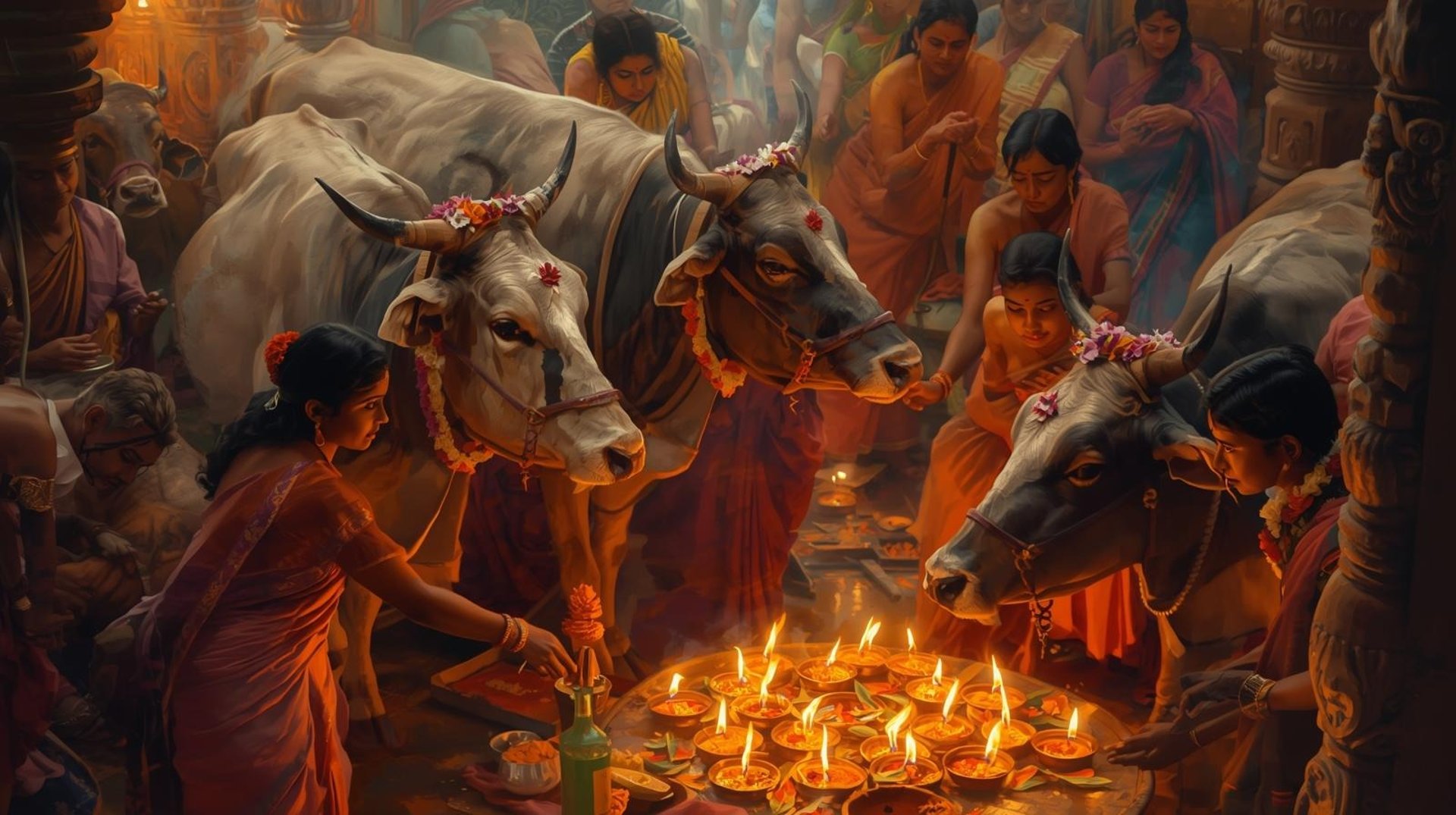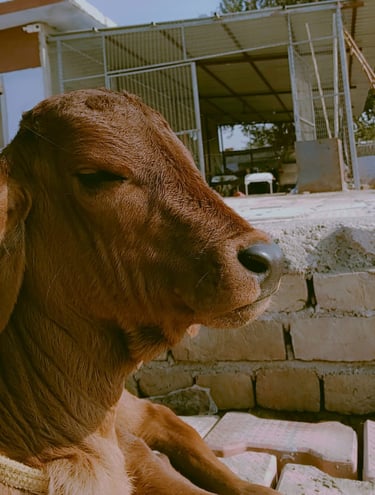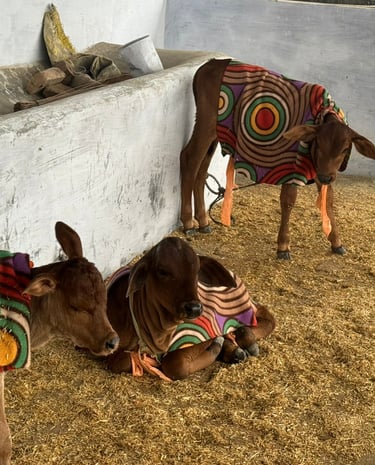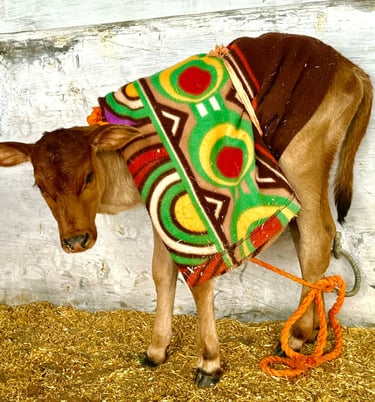गौशाला / गौ सेवा
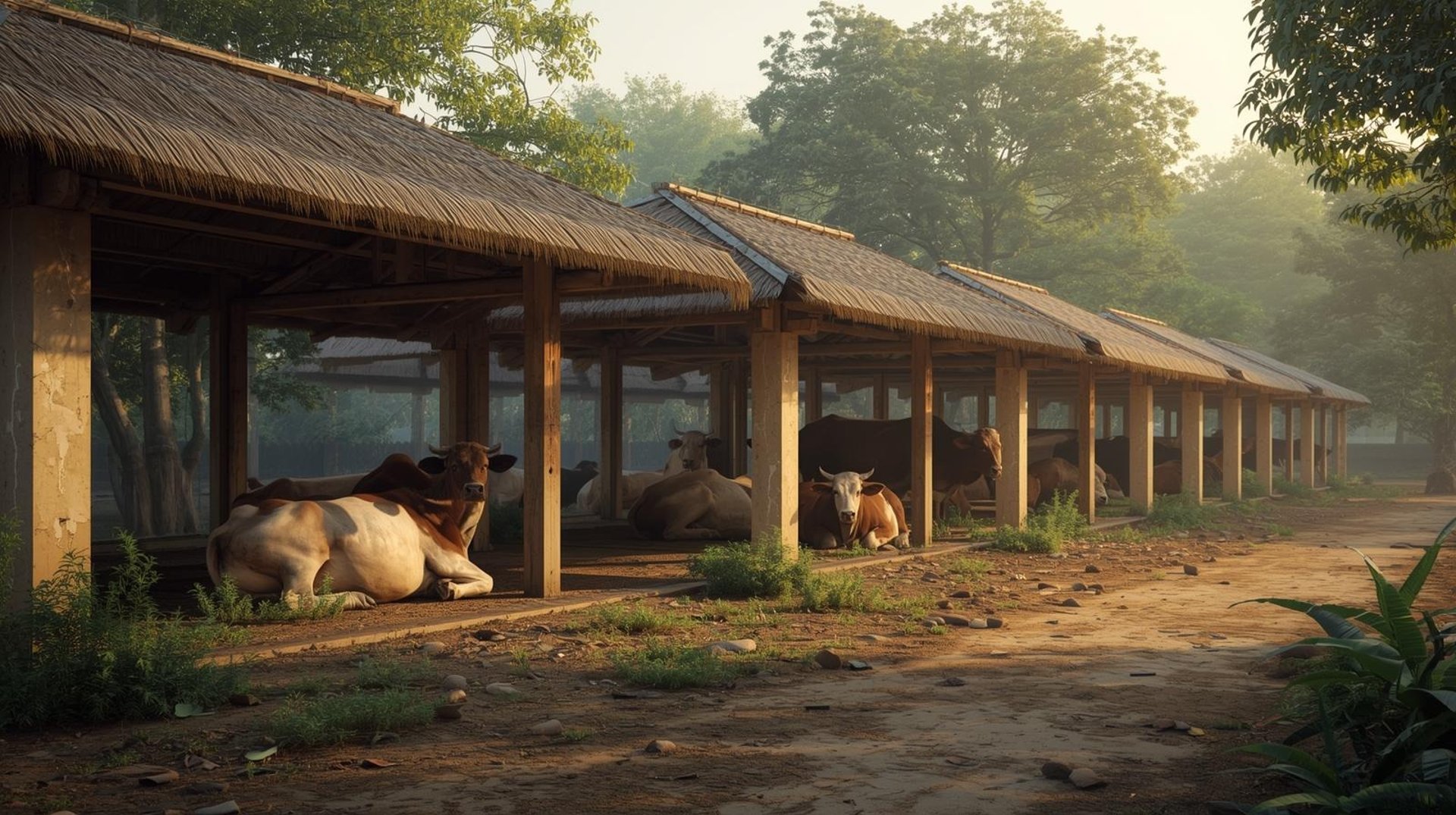
गाय का दूध अमृत तुल्य माना गया है, यह न केवल शरीर को पुष्ट करता है बल्कि मन और बुद्धि को भी निर्मल बनाता है। शास्त्रों में कहा गया है कि गाय का दूध, दही और घी सात्विक आहार के प्रमुख अंग हैं, जो साधक को ध्यान और भक्ति में स्थिर रखते हैं। वहीं गाय का गोबर और गोमूत्र अत्यंत पवित्र माने गए हैं; इनसे भूमि उपजाऊ होती है, वातावरण शुद्ध होता है और यज्ञादि में इनका प्रयोग वातावरण को दिव्यता से भर देता है। गाय स्वयं देवताओं का निवासस्थान है और उनकी सेवा से समस्त पाप नष्ट होकर पुण्य और मोक्ष की प्राप्ति होती है।गोसेवा का महत्व शास्त्रों में अत्यंत उच्च बताया गया है क्योंकि गाय समस्त देवताओं का निवासस्थान है और उनकी सेवा से समस्त पाप नष्ट होकर पुण्य की प्राप्ति होती है। पद्मपुराण में कहा गया है “गावः सर्वस्य भूतस्य मातरः पापनाशिनः” अर्थात् गाय सम्पूर्ण प्राणियों की माता हैं और पापों का नाश करने वाली हैं। मनुस्मृति में भी उल्लेख है “गवां च पूजनं दानं सर्वपापप्रणाशनम्” कि गौपूजन और गोदान सभी पापों का नाश करने वाला है। इसी प्रकार स्कन्दपुराण में वर्णित है कि जो व्यक्ति श्रद्धा और भक्ति भाव से गोसेवा करता है, उसे धर्म, अर्थ, काम और अंततः मोक्ष की प्राप्ति होती है। इसलिए गोसेवा केवल एक धार्मिक कर्तव्य ही नहीं बल्कि मोक्षदायिनी साधना है जो जीव को ईश्वर से जोड़ती है।
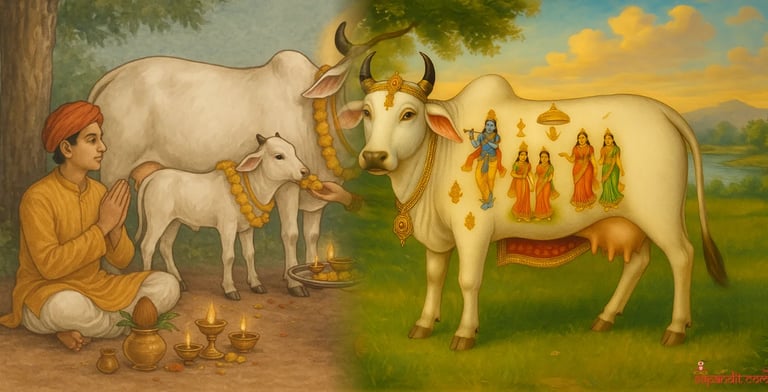


Cow’s milk is regarded as nectar-like, nourishing the body and purifying the mind and intellect. Scriptures describe milk, curd, and ghee from the cow as essential components of a sattvic diet, helping seekers remain steady in meditation and devotion. Cow dung and urine are considered highly sacred; they enrich the soil, purify the environment, and when used in rituals like yajnas, they create an atmosphere of divinity. The cow is revered as the abode of all deities, and by serving her, one is freed from sins and attains virtue and ultimately liberation.The importance of cow service (Goseva) has been described in the scriptures as supremely high, for the cow is regarded as the abode of all deities, and by serving her, all sins are destroyed and great merits are attained. The Padma Purana states: “Gāvaḥ sarvasya bhūtasya mātaraḥ pāpanāśinaḥ” meaning, cows are the mothers of all living beings and destroyers of sins. Similarly, the Manusmriti declares: “Gavāṁ ca pūjanaṁ dānaṁ sarvapāpapraṇāśanam” — the worship and gifting of cows remove all sins. The Skanda Purana also describes that one who serves cows with devotion and reverence attains Dharma, Artha, Kama, and ultimately Moksha. Thus, Goseva is not merely a religious duty but a liberating spiritual practice that connects the soul directly with the Divine.
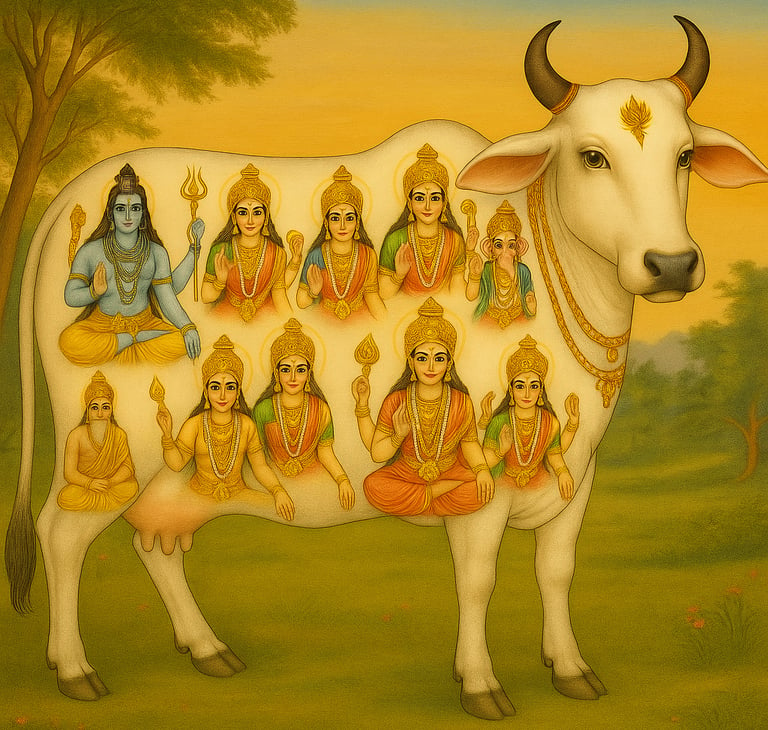

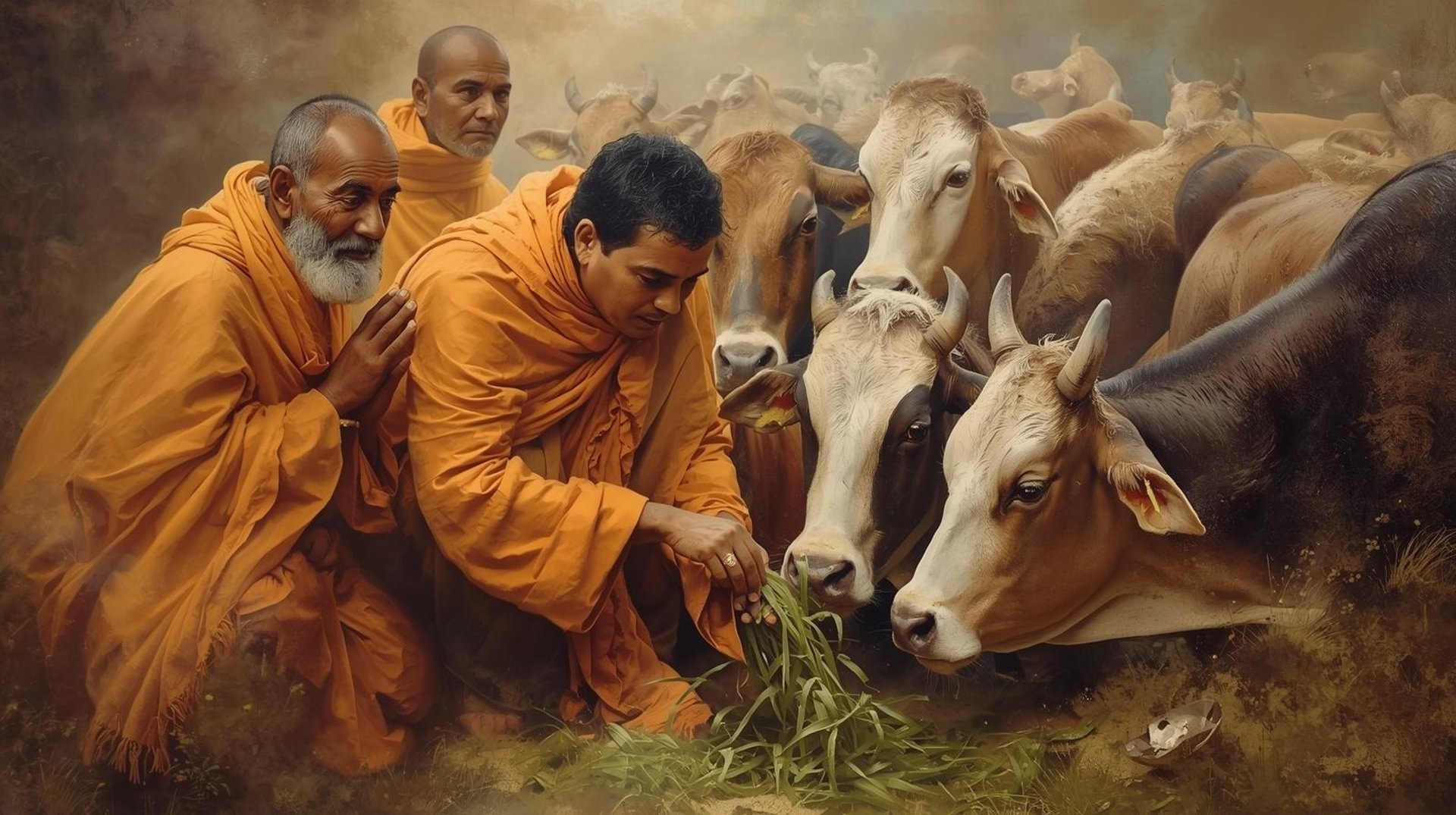
गौमाता का महत्व शास्त्रों में और मोक्ष की प्राप्ति में उनकी भूमिका
भारतीय संस्कृति में गौमाता को विशेष स्थान प्राप्त है। वैदिक एवं पुराणिक साहित्य में गाय केवल एक पशु न होकर "माता" स्वरूप में पूजनीय है। वेदों में गाय को "अघ्न्या" कहा गया है अर्थात् जिसका वध न किया जाए। शास्त्रों के अनुसार गौसेवा और गोपोषण से न केवल धर्म, अर्थ, काम की सिद्धि होती है, बल्कि अंततः मोक्ष की भी प्राप्ति होती है।
गौमाता का वेदों में महत्व
ऋग्वेद, यजुर्वेद, अथर्ववेद आदि में अनेक स्थलों पर गाय का गौरव वर्णित है।
ऋग्वेद (6.28.1):
“गावो भूताः विश्वस्य मातरः”
अर्थात् गायें सम्पूर्ण जगत की माता हैं। गाय के शरीर में समस्त देवताओं का निवास माना गया है। वेदों के अनुसार गाय से उत्पन्न पंचगव्य (दूध, दही, घृत, गोमूत्र और गोबर) पवित्र एवं आयुर्वर्धक है। यह शरीर और आत्मा दोनों की शुद्धि करता है।
पुराणों में गोसेवा का महत्त्व
स्कन्दपुराण, पद्मपुराण और भागवतपुराण में गाय की सेवा को परम पुण्य कहा गया है।
पद्मपुराण (उत्तरखण्ड):
“गावः सर्वस्य भूतस्य मातरः पापनाशिनः।
पुत्रवत् पालनं कार्यं सदाऽनुग्रहकाङ्क्षिभिः॥”
अर्थात् गाय सब प्राणियों की माता हैं, पापों का नाश करती हैं और सदैव पुत्रवत् पालन योग्य हैं।
गोदान और मोक्ष की प्राप्ति
धर्मशास्त्रों में गोदान (गाय का दान) को महानतम दानों में गिना गया है।
मनुस्मृति (3.84):
“गवां च पूजनं दानं सर्वपापप्रणाशनम्।”
अर्थात् गौ-पूजन और गोदान से सभी पाप नष्ट हो जाते हैं।
महाभारत में भी कहा गया है कि जो व्यक्ति श्रद्धापूर्वक गोदान करता है, उसे यमलोक में कठिनाइयों का सामना नहीं करना पड़ता और वह मोक्ष का अधिकारी होता है।
गौमाता और मोक्ष मार्ग
भक्ति, ज्ञान और योग की भांति "गौसेवा" भी मोक्ष की एक सरल साधना मानी गई है।भागवत पुराण में भगवान श्रीकृष्ण स्वयं गोपाल रूप में गोसेवा करते हुए दिखाए गए हैं।
श्रीमद्भागवतम् (10.8.16):
“नन्दः पशुप्रवरः सुतमेवमेव
लक्ष्म्याः पतिं श्रिय इवात्मजाग्र्यम्।”
भगवान स्वयं गोपालक बनकर यह संदेश देते हैं कि गौसेवा ईश्वरसेवा के समान है।गौमाता का स्थान केवल कृषि और अर्थव्यवस्था तक सीमित नहीं है, बल्कि वे मोक्ष के द्वार तक पहुँचाने वाली सहायक हैं। शास्त्रों के अनुसार जो व्यक्ति गौ की सेवा करता है, उसका जीवन शुद्ध, पुण्यवान और मोक्षमार्गी बन जाता है। अतः प्रत्येक सनातनी का यह कर्तव्य है कि वह गाय का सम्मान करे, उनकी रक्षा करे और उनके माध्यम से ईश्वर एवं मोक्ष की प्राप्ति का साधन बनाए।
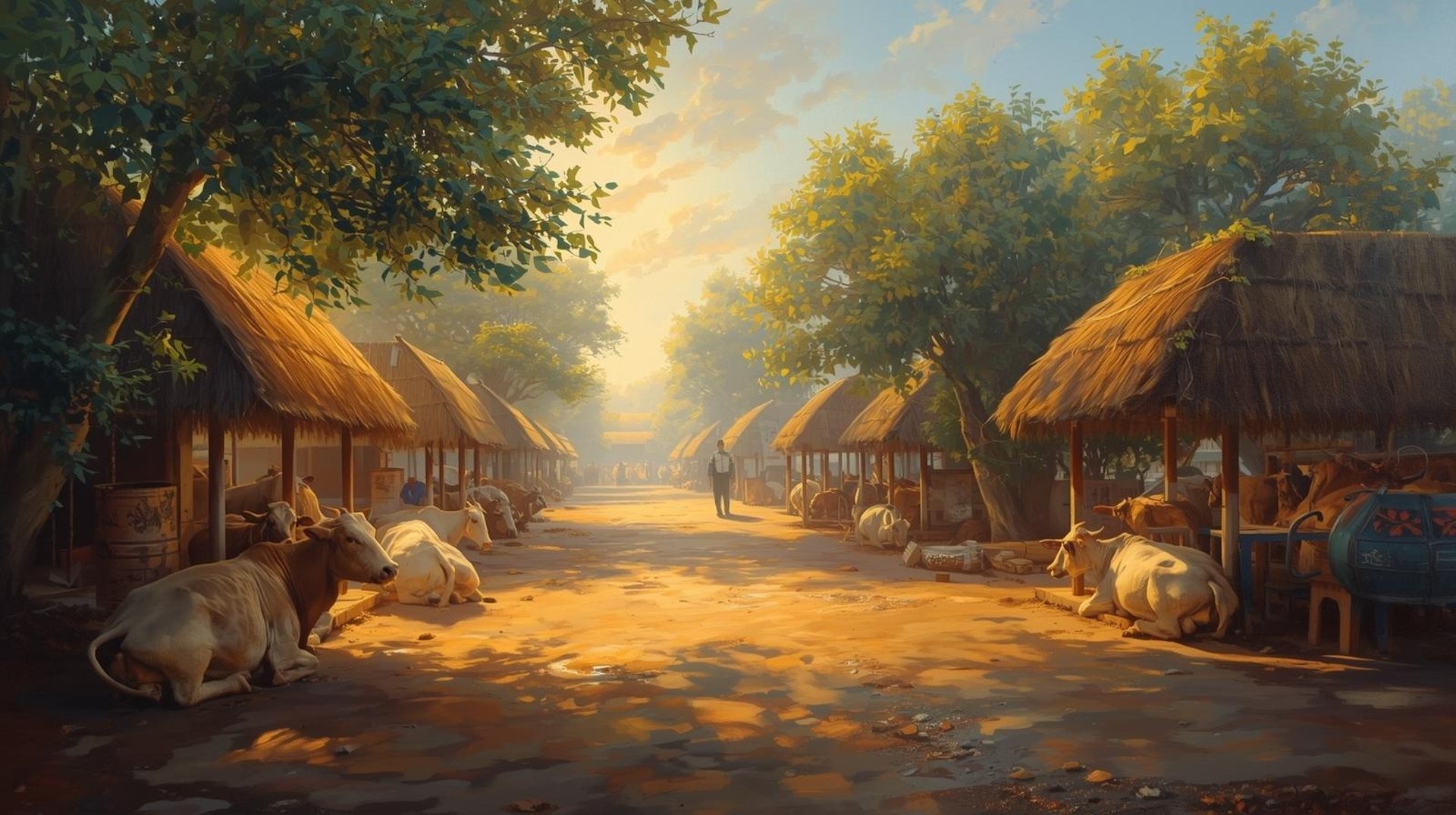
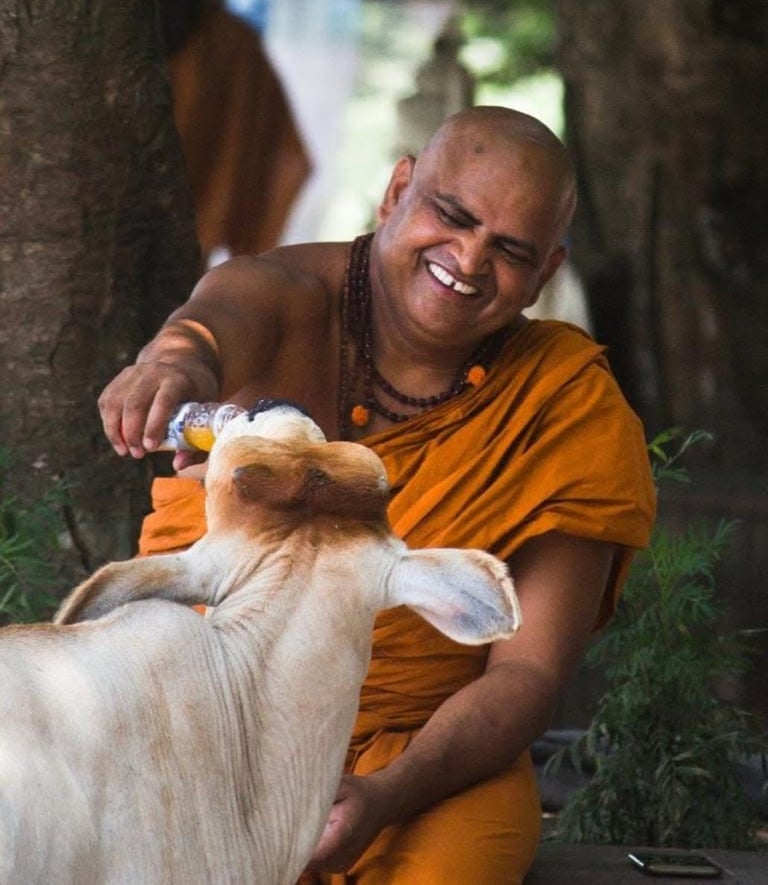

हमारे महाराज जी ने सर्वप्रथम सनातन धर्म की सेवा गौमाता की सेवा से प्रारंभ की थी जिसमे की मुख्य कार्य था गौरक्षा। गौ माता को जिहादियों द्वारा प्रताड़ित किया जा रहा था जिसे रोकने का काम हामारे महाराज जी ने किया।
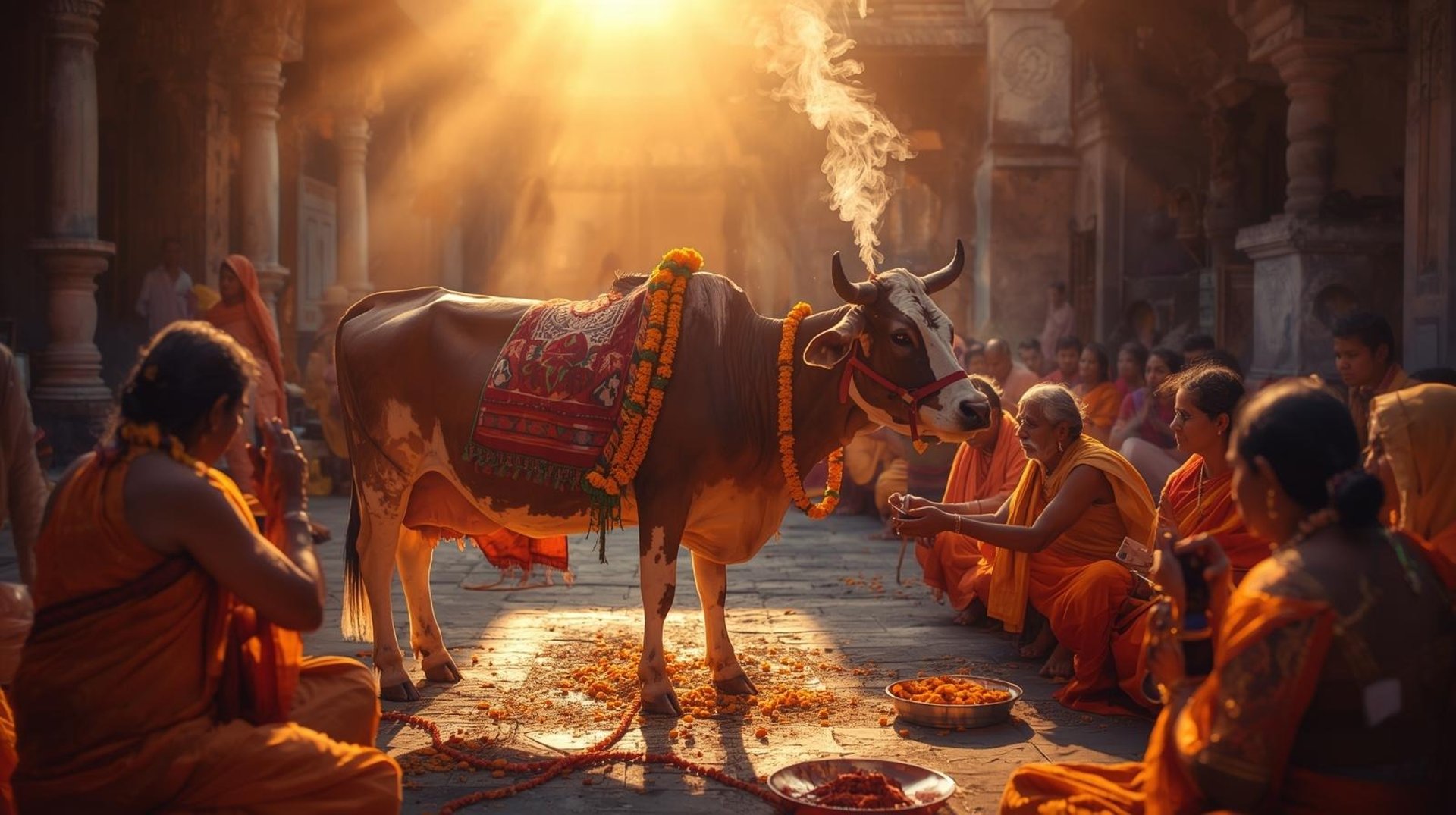
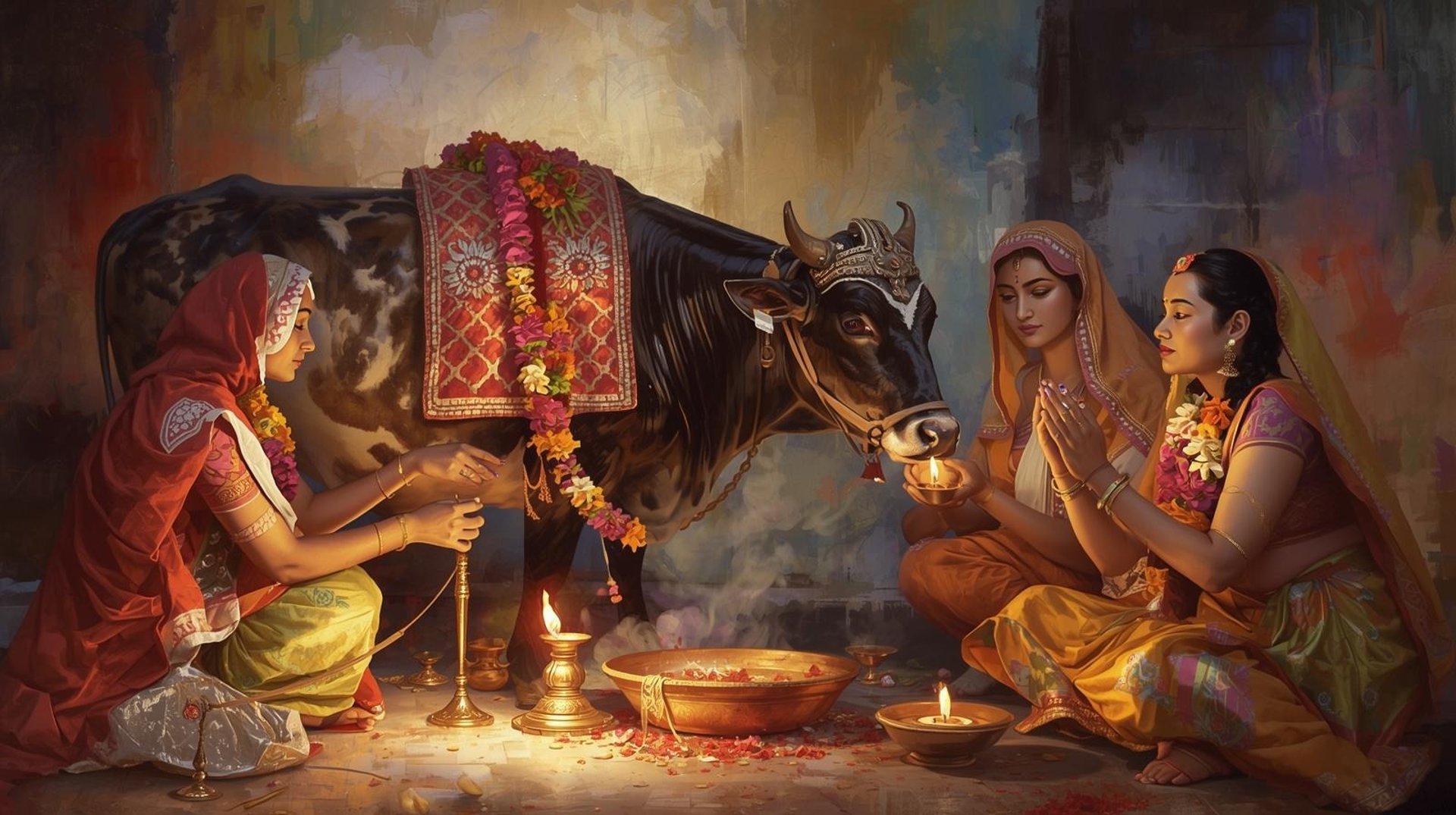
The Importance of Cows in Hindu Shastras and Their Role in Moksha
In Indian culture, the cow holds a place of supreme reverence. In the Vedic and Puranic scriptures, the cow is not merely seen as an animal but as a “mother.” In the Vedas, she is addressed as “Aghnya”—one who should never be harmed. According to the scriptures, serving and protecting cows (Goseva and Goposhan) not only fulfills the goals of Dharma, Artha, and Kama but ultimately leads to Moksha (liberation).
The Significance of the Cow in the Vedas
The Rigveda, Yajurveda, and Atharvaveda all glorify the sanctity of the cow.
Rigveda (6.28.1):
“Gāvo bhūtāḥ viśvasya mātaraḥ”
“Cows are the mothers of the entire universe.” It is believed that all the deities reside in the body of the cow. The Vedas describe Panchagavya (milk, curd, ghee, cow urine, and cow dung) as sacred and life-enhancing. It purifies both body and soul.
The Cow in the Puranas
The Skanda Purana, Padma Purana, and Bhagavata Purana highlight the spiritual significance of serving cows.
Padma Purana (Uttarakhand):
“Gāvaḥ sarvasya bhūtasya mātaraḥ pāpanāśinaḥ,
Putravat pālanaṁ kāryaṁ sadānugrahakāṅkṣibhiḥ.”
“Cows are the mothers of all beings, destroyers of sins, and should always be cared for as lovingly as one’s own children.”
Gifts of Cows (Godāna) and Attaining Moksha
In Dharmashastras, gifting cows (Godāna) is regarded as one of the greatest acts of charity.
Manusmriti (3.84):
“Gavāṁ ca pūjanaṁ dānaṁ sarvapāpapraṇāśanam.”
“Worshipping and gifting cows destroys all sins.”
The Mahabharata also declares that a person who donates cows with devotion is freed from sufferings in Yamaloka (the realm of Yama) and becomes eligible for Moksha.
Cows and the Path to Liberation
Like devotion (Bhakti), knowledge (Jnana), and yoga, cow service (Goseva) is also considered a path leading to liberation.
In the Bhagavata Purana, Lord Krishna Himself is portrayed as a cowherd (Gopala), teaching by example that serving cows is equivalent to serving God.
Śrīmad Bhāgavatam (10.8.16):
“Nandaḥ paśupravaraḥ sutamevameva
Lakṣmyāḥ patiṁ śriya ivātmajāgryam.”
Here, it is shown that the Supreme Lord, Lakshmi’s consort, appeared in the house of Nanda, the chief of cowherds, thereby sanctifying Goseva. The role of the cow is not limited to agriculture or economics; she is a divine guide leading toward Moksha. According to the scriptures, one who serves and protects cows leads a life of purity, merit, and spiritual fulfillment. Thus, it is the sacred duty of every Sanatani (follower of Sanatan Dharma) to revere, protect, and serve cows—considering them a medium to attain God and liberation.
